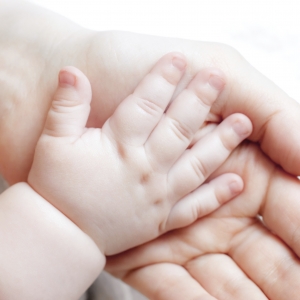Custody and maintenance of children, like other family matters in Indonesia such as divorce, and inheritance; is governed by religious affiliation of the respective spouses. Some of you may find it absurd, but this relates to the belief that religion plays an important role in the family environment.
Child Custody for Moslem
The questions regarding who is entitled to custody or maintenance of children in the event of a divorce between a husband and wife who are Moslems, are subject to the provisions of the Compilation of Islamic Law, and also subject to the principles contained in the Religion of Islam. In the event of divorce, the maintenance of children who have not yet mumayyiz(under 12 year old) is their mother’s. In the case of mothers has died, then the position of woman as the holder of the rights can be replaced by the following persons: a). the women in a straight line upward from the mother, b). father, c). the women in a straight line upwards of the father; d). sister of the child concerned; or e). Blood relatives of women by the side line of the father. So, under normal circumstances, the law prioritizes custody to the mother of the child. Please take a note, under normal circumstances! If you think your particular situations are not even close, please continue reading.
For children who already mumayyiz, it is up to the child to choose between his father or mother as the holder of the right of maintenance. Nevertheless, the father of the child has the responsibility to provide child support according to his ability regardless who holds the custody. He should provide child support at least until the child is able to take care of him/herself or have aged 21 years. This provision relates to the principle in Islam that the father is the bread-maker in the family. The fact that in this modern world where women are also working and making good career, it does not forbid the obligation of a father to provide the child support. Something we must realize is that other than as husband and wife, we all have other capacity that is as father and mother for children born in our marriage.
Child Custody for Non-Moslem
Child custody and maintenance for Non-Moslem is applicable for children under the age of 18 years old or unmarried. In case of divorce to both parents, the provision of child custody and maintenance can be found in 1974 Marriage Law, Child Protection Law, and Indonesia’s Civil Code.
The 1974 Marriage Law stipulates that in case of divorce, both parents are still obliged to maintain and educate their children until the child marries or able to support themselves. In the event of disputes, they are still obliged to maintain and educate their children until the child marries or able to support themselves. A district court may enter into a verdict on the disputes. The provision sends a message that child custody and maintenance in the event of divorce is still a part of the obligations and responsibilities of spouses. Furthermore, Child Protection Law provides that parents are obliged and responsible for caring, nurturing, educating, and protecting children, fostering the children in accordance with their abilities, talents, and interests, and should prevent the occurrence of early marriage.
The Civil Code stipulates that the legal consequences of a divorce may end the parental authority (ouderlijke macht) and turns into guardianship (voogdij). When the marriage dissolved by the court, there should also be regulated on the guardianship of the underage children. The guardianship shall be determined after the judge hears family from both parents with close relationship with the child. Determination guardian also may be reviewed by a judge at the request of the father or the mother based on changing circumstances.
How Can You Lose the Custody?
Being a holder of child custody and maintenance is not permanent. A father or a mother could lose child custody and maintenance in the event he/she cannot guarantee the child’s physical and spiritual safety.
If You’re Moslem
At the request of child’s relatives concerned, the religious court may transfer the custody rights to other relatives who have rights of custody as well. Although child custody is a right of a mother, but sometime she could lose the rights due to special factors. There are factors that can impede her rights in obtaining child custody, among others, are:
- Ar-Riqqu. Literally, it means that the person concerned has status as a slave. I believe this is no longer applicable as we recognized equal status to all human being. Nevertheless, this can be further interpreted that the person has no freedom at her will. Don’t get me wrong! For example, you are working abroad and you cannot attend the child on daily basis in Indonesia. You need help from your family in Indonesia to take care of the child. On the other hand, your husband resides in Indonesia. Instead of giving the custody to you as the mother of the child, or giving a way the custody to wife’s parent; the father of the child will prevail and shall be the most appropriate parent to hold the custody and maintenance of the child.
- The Fasiq. She conducts immoral behaviors such as having an affair with other man, or even worse, committing adultery. Can we trust her with the responsibility of parenting? When the court found her committing adultery, she will no longer entitle to child custody. How come? If she still has the custody, she will educate the child in accordance with her bad habits. Remember, our children learning by examples of their parents. The Islamic Law finds that the Fasiq will give negative impact to the children.
- The Kafir, means Non-Moslem person. The Islamic Law finds that they should not be entrusted with the parenting right of a Moslem child. Furthermore, the Islamic Law finds that they have the possibility in deceiving the child and removing it from the religious beliefs of Islam.
- A woman re-married with another man. On the issues of parenting, a mother holds primary rights to child custody and maintenance. However, the right will be automatically revoked when she married to another man with no family relationship with the child (ajnabi). On the other hand, if she married to a man with ties of kinship with the child, the mother custody is not lost. The revocation of the custody right shall be on the ground of religious court’s order. In this particular situation, I would like to refer to the Hadits of Prophet of Muhammad:
أَنْتِ أَحَقُّ بِهِ مَا لَمْ تَنْكِحِي
“You have more right to nurture him/her as long as you are not married.”
When the impediment factors are disappearing, for example the mother divorced again, she will get her custody right back. Some women don’t know about these rules when they got divorce. When our firm work for a case in a religious court in Bali, we advised our client to resign from her employment abroad to avoid her losing the custody. Nevertheless, such decision sometimes cannot always be accepted by everyone. Having a custody means that you have a responsibility to raise the child. When you and your ex do not cooperate, you will face difficulties in doing the job. After all, it’s not easy being a single parent.
If You’re Non-Moslem
Every child has the right to be taken care of by their parents, unless there is a reason and/or valid legal rules indicate that the separation with the parent is in the best interests of the child and should be taken as the final consideration. However, court decisions remain to decide custody of parents against children when one of their parents behave poorly and neglect their obligations towards the child. Nevertheless, someone who holds child custody and maintenance must be of the same religious affiliation with the child. The existence of this provision will ensure the parent will provide religious education for the child properly.
The Child Protection Law further stipulates that parental authority of one or both parents may be revoked at the request of the other parent or adult siblings or authorized officer based on the court verdict due to neglecting the duty towards the child and behave badly. Let me be more specific on the definition of other parent. It can be either grandmother of the child from the father’s line, grandfather of the child from the mother’s line, and the child’s family in straight line upward (grandfather or grandmother of the child). The first one is being prioritized in the event both parents are being revoked by the court.
In view of the above and regardless who have the custody, I believe you and your ex must work together in raising the child. Both of you still have obligations and responsibilities even if you’re not married anymore. Set aside the ego, and work side by side for your flesh and blood’s upbringing. I know it is easier said than done, but it is worth to try.
Well, I hope you get the whole picture about this issue and most important is that you have enough access to the legal system that protects your rights. At Wijaya & Co, we are helping people with their legal issues and assisting them to have access to the legal system in Indonesia. This information is to help them to gain the access and please feel free to forward it to others who might need the information.
I am Asep Wijaya. Thank you for visiting my blog, and reading my posts.
****
Our thanks to Asep Wijaya, Managing Director of
Wijaya & Co for sharing this information with us!
Disclaimer:
The above is provided for informational purposes only and is NOT to be relied upon as legal advice. This information is not a substitute for the advice of an attorney and should not be construed as a solicitation. No attorney-client relationship is established by use of information found within this article nor in this website.














